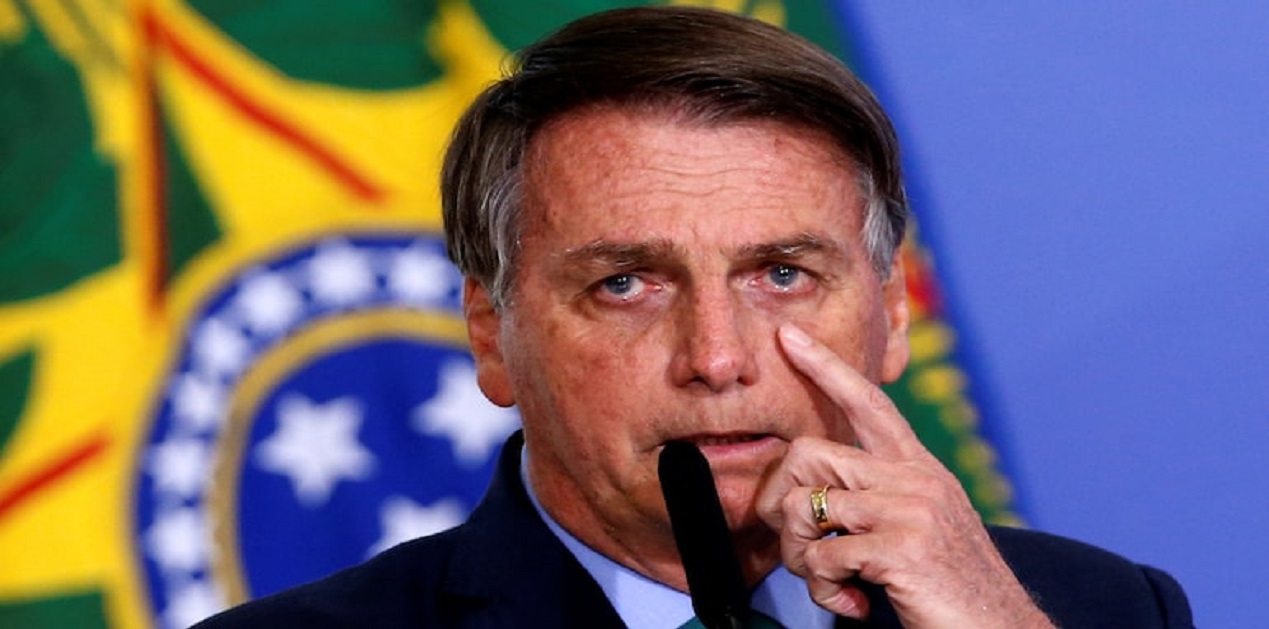Brazil, by far the biggest and most powerful country in South America, is witnessing probably the most serious crisis of the century. Though Covid 19 has played havoc on Brazil as it has done to many other developing nations, its after effect has placed the country in a very tumultuous situation. More than 5,68,000 Brazilians have perished in the Tsunami of the pandemic largely due to its severity but partly also due the action of the Brazilian government (or rather the lack of it) to address the situation. In responding to the disease, the Government was not only lackadaisical but in the initial stages it was outright in denial mode. The pandemic has further pushed the nation’s economy, already on a downhill path.
The immediate fall out of the Covid was a sharp decline in the popularity graph of Jair Bolsonaro, the President of Brazil. There had been demonstrations against the president accusing him of inefficiency in dealing with the pandemic and gross under-estimation of its severity. He has also been accused of wide -scale corruption including the last year’s import of Hydroxychloroquine from India and this year’s deal to import Covaxin from Bharat Biotech despite the approval of its use still pending with the WHO. This deal, however, has recently been called off. Nevertheless, Bolsonaro refuses to budge. Following the footsteps of his equally rightist friend Donald Trump, the Brazilian President has been claiming that the forthcoming presidential elections would be rigged to ensure his defeat. Just short of branding the whole electoral system of Brazil undemocratic, he has gone as far as repeatedly insulting and accusing Luis Roberto Barroso, a Supreme Court justice and Chairman of the Supreme Electoral Court, of “working to benefit his opponent and the former leftist president and Luiz Inacio Lula da Silva”, who has been leading in the recent opinion polls by a large margin.
Lula, an iconic political figure who ruled Brazil for two terms before vacating the post due to the constitutional restriction on the number of terms a president can remain in office, is a grass-root politician unlike Bosonaro who has also questioned the impartiality of electronic voting system and, instead, has asked for the printed ballots.
Electoral authorities have repeatedly denied any problems with the voting system and Bolsonaro has failed to present proof thereof despite a Supreme Court order to substantiate his allegations. Bolsonaro, it is alleged, is trying to sow doubt among his passionate supporters about the 2022 election results, setting the stage for potential conflicts similar to those made by Trump who alleged of fraud in the last presidential election of the United States.
Meanwhile, the lower House of the Brazilian Congress which was scheduled to debate the impeachment motion against the President on 9th August had to postpone the proceedings due to the unusual march of the armed forces on the streets of Brasilia. Questioning the timing of this march, which usually takes place during the national day celebrations, critics have termed it as an act to intimidate the opposition. Some analysts opine that this military procession shows “Bolsonaro is either a poor judge of the political climate or is knowingly straining against democratic norms”. However, later the House of deputies (the Lower House of the Brazilian Congress) rejected by 239 t0 218 votes, the constitutional amendment proposed by the President to have printed receipts in addition to the electronic voting system, thus serving another blow to him.
Another major issue on which the criticism of Bolsonaro has been snowballing is that of climate change. Critics claim that the rightist president has not hesitated in going for mining and commercial farming in unrestricted way which has resulted in destruction of a major chunk of the preserved Amazon Forest due presumably to deliberate fires caused by the mining lobby and the rightist elements. According to the data issued by the environmental activists, 5,104 Sq. Km. of forest in the Amazon has been destroyed just from January to June this year. Though Brazil, as a signatory of the Paris Pact, is committed to reduce the carbon emission by 37% by 2025 and 43% by 2030, it is not likely to reach even half of the target by the deadline. The Brazilian Foreign Minister Ernesto Araujo, a known opponent of the climate preservation, had disbanded the division on climate change in his office soon after taking over. Bolsonaro’s incendiary rhetoric has, the critics argue, has played catalyst for deforestation. Meanwhile, the Articulation of Indigenous People of Brazil (AIPB) has also taken the president to the International Criminal Court on the grounds of “explicit, systematic and intentional anti-indigenous policy since 2019”.
Brazilian economy has already taken a beating. From GDP of US$ 1,916. 93 billion in 2018, it slipped to $ 1,689.3 next year and has further nose-dived to $ 1,434 billion last year. During the last decade, Brazil’s GDP had gone down from $ 2,616 billion in 2011 to $ 1,434 billion in 2020. This steep drop was despite the fact that Brazil is the largest producer of coffee, sugar, ethanol, soya and world’s second largest producer of meat and poultry products even though it utilises only a little less than 25% of its arable land. Brazil, world’s fifth largest in area and seventh largest in population, is home to both, more than 22% of world’s potable water and forests. It is also very rich in minerals for example; it has enough iron ore reserves to cater to the entire world’s need for more than 500 years!
The main reason why the Brazilian economy could not grow robustly despite all the necessary ingredients for growth is the wide- spread corruption, a gaping divide between the haves and the have-nots and probably the political will (or rather the lack of it). Corruption, especially at higher levels, has been a malaise in Brazil. We can easily trace back the major corruption scandals since the military regime of 1964. Almost every government since then had faced corruption charges at gigantic scales. Leaders had been charged and convicted frequently. The last elected president from the leftist workers party, Dilma Rouseff had to be impeached and removed from office by the Congress. This is why Bolsonaro, an ex-army man and comparatively a novice in electoral politics without any corruption record, could get elected to the office in 2018 albeit in the second round. But soon his misogynist comments, far right policies, corruption charges and denouncing even the existence of Corona pandemic seem to have antagonised the majority of the population.
Being an active member of BRICS, IBSA, G20, Basic and many regional political and economic fora due to its sheer weight in the region, Brazil also aspires for a permanent seat in the UN Security Council along with India, Japan and Germany. However, its mounting problems have not been able to give the necessary impetus to this nation covering almost half of South American continent in area as well as in population.
Elections are round the corner and it will be an uphill task for Bolsonaro to erase the negative public perception the majority has about him especially in view of the popular appeal of his formidable adversary Lula who too was sentenced for benefitting through corrupt practices during his tenure. Between the two contestants, which one is chosen by Brazil will be interesting to watch.
(The paper is the author’s individual scholastic articulation. The author certifies that the article/paper is original in content, unpublished and it has not been submitted for publication/web upload elsewhere, and that the facts and figures quoted are duly referenced, as needed, and are believed to be correct). (The paper does not necessarily represent the organisational stance... More >>
Image Source: https://akm-img-a-in.tosshub.com/indiatoday/images/story/202108/2021-08-05T214151Z_13079202_RC_1200x768.png?O2hXP4H.bkW.xojq8yEy95uzhIia0PaO&size=770:433











Post new comment